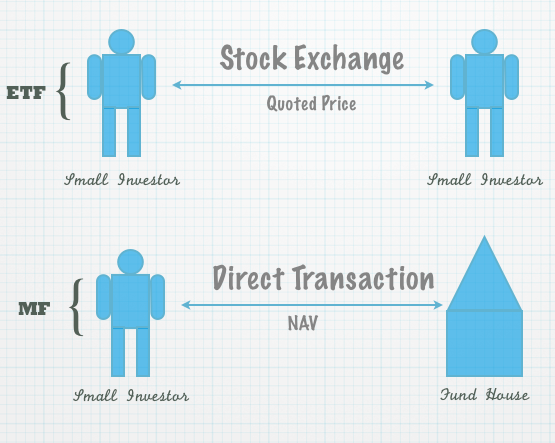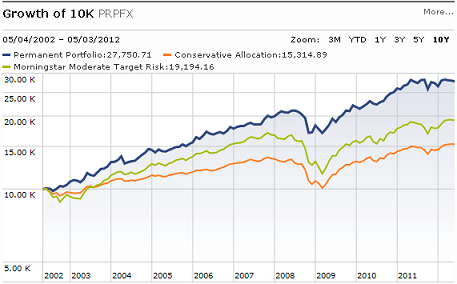ETFs vs Mutual Funds
Post on: 4 Июль, 2015 No Comment

%img src=http://192.249.112.232/
acapam5/wp-content/uploads/2011/06/etf-exchange-traded-funds.jpg?w=150 /% In recent years more and more investors are selecting Exchange Traded Funds (ETFs) over mutual funds. But what exactly is an ETF, and how do they differ from the mutual fund? Mutual funds and ETFs do have some similarities such as allowing investors to diversify their assets among numerous sectors of the market. However, there are several important distinctions worth noting.
Tax-Efficiency
If you own a mutual fund, then you have probably experienced a year-end capital gains distribution (even if your mutual fund had a negative return for the year) because trades made by the fund sponsor throughout the year flow to its shareholders. Depending on the size of your portfolio, this can create unwanted and unpredictable tax consequences at year-end. ETFs, however, do not have capital gains distributions because ETF sponsors do not transact with their shareholders. ETFs are traded among other investors. Hence, capital gains/losses are controlled by the investor making them highly tax efficient.
Liquidity and Transparency
While mutual fund investors can only buy or sell their shares directly from the fund sponsor and only at the end of each day, ETFs can be traded throughout the day just like stocks. Investors not only can actively trade ETFs, they can also employ the same trading strategies that apply to stocks (limit or stop loss orders, short-sales, and options). In addition, it’s easier to “look under the hood” of an ETF versus a mutual fund because unlike mutual funds, ETFs report their holdings daily, giving investors up-to-date information.
Mutual fund companies, regardless of size, incur significant recordkeeping expenses to keep track of all their shareholders. ETFs, however, are low-cost and do not have such expenses because they are traded among investors just like stocks. Unlike some mutual funds, ETFs do not have sales loads or require minimum investments; investors only have to pay a commission to their brokerage firm to trade ETFs. In addition, most popular ETFs are extremely liquid, as millions of shares are traded each day. This allows investors to easily trade their shares with minimal impact on price.
Based on this information, you may assume mutual funds are no longer good investment options; however, it is not that simple. There is no hard and fast rule, but here are some good rules of thumb to determine whether to invest in a mutual fund or an ETF:

- Many mutual fund companies have low minimums to start (as low as $25), but commissions to trade ETFs make such small purchases very cost prohibitive.
- If an investor plans to dollar-cost-average (buy a fixed dollar amount every month) or reinvest dividends, then a mutual fund is a better option.
- Mutual funds are effective for gaining exposure to a very specific sector of the market. For instance, a mutual fund would be more appropriate for an investor interested in investing in international high yield fixed income or a specific country.
The growth in ETFs has exploded in recent years, and according to estimates by the Financial Research Corp. of Boston, ETF assets will most likely reach $1.4 trillion by 2011. And while mutual funds still remain the dominant investment vehicles in individual retirement accounts where the bulk of investor assets are held, it is important to determine which investment is right for your unique circumstances.
Have a financial question? Contact ACap Asset Management at info@acapam.com or 818-272-8511 .
Ara Oghoorian, CFA, CFP® is the president and founder of ACap Asset Management, Inc. a “Fee-Only” investment management firm located in Los Angeles, CA specializing in helping doctors and physicians make sound financial decisions. Visit us at www.acapam.com
By Ara Oghoorian | Posted on March 11, 2010














